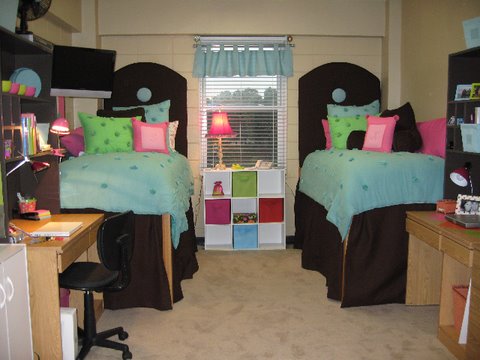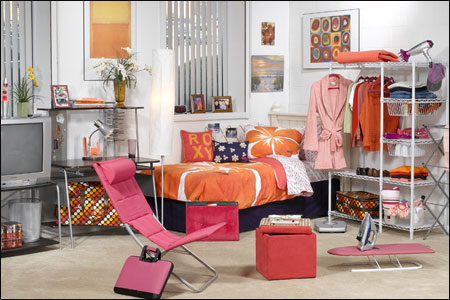Archive for July 2014
Things That Are Not Allowed in Dorm Rooms
Dorm life gives students a bit of home on campus, but not all items you use at home should make the trek to college. The housing department at your future college sets the standards for items that are allowed and prohibited in the dorms. Most of the restrictions are based on the protection of all students living in communal housing. Reviewing the specific restrictions for your college helps you avoid breaking any rules.
Fire Hazards
-
With so many people living in one building, colleges need to ban items that present a fire hazard. Incense, candles and any other items with open flames are not allowed in dormitories. Smoking cigarettes or cigars is another activity banned in and around dorms. Halogen lamps are generally considered a fire hazard and are not allowed on campus. Some colleges prohibit certain types of curtains because they may not meet fire safety requirements.
Restricted Appliances
-
Many appliances are banned in dorm rooms due the potential for overloaded circuits or fires. A small dorm refrigerator and microwave are usually allowed, but other cooking implements are prohibited. Leave appliances such as hot plates, toasters, electric skillets, toaster ovens and indoor grills at home. Window air conditioners and space heaters are also commonly found on prohibited item lists. These appliances use a lot of power and can overwork the electrical system. Check on the use of extension cords, as colleges often ban them as another way to prevent a heavy load on the circuits.
Pets
-
Pets are generally not allowed in college dorms. Animals make messes and often cause damage that colleges don't want to deal with. Pets also make noises that may disrupt your dorm neighbors. It's tough to leave a favorite pet behind, but college students are often too busy to take care of pets anyway. Some colleges do allow small fish tanks in the dorms. You still have pet-care responsibilities with fish, including remembering to feed the fish and cleaning the tank. Decide if you want that responsibility before setting up an aquarium in your room.
Certain Furniture
-
Colleges vary on the furniture allowed in the dorms. Some colleges provide all of the furniture necessary for you and don't want additional furniture in the rooms. Most dormitories lack excess space, so a full-sized couch or other large furniture may not fit even if they aren't prohibited by the college. Loft beds are also restricted by some colleges. You may need to purchase the lofting kit from the college or meet requirements on the maximum height. Homemade lofts are sometimes prohibited to reduce the risk of a falling bed.
Non-Drinkers Vs. Drinkers in College
Drinking alcohol and alcohol abuse is a rising problem on college campuses. Binge drinking is detrimental to academic performance, as well as health and personal relationships. In an effort to curb this problem, many college campuses have instituted alcohol treatment programs. Students also commonly have access to psychological counseling on campus. However, statistics show that the students who consume the most alcohol may be the least likely to seek treatment.
Drinking on College Campuses
-
Some statistics suggest that the number of non-drinkers on campuses nationally is increasing. Some college campuses provide activities that do not involve alcohol, but not all students take advantage of these. In fact, in 2005, 44 percent of students attending four-year college drank at the binge level.
Consequences of Binge Drinking
-
The health consequences of binge drinking are obvious. Besides the risk of being injured or injuring others while driving under the influence of alcohol, it is estimated that 30,000 students annually seek medical attention after overdosing on alcohol. Alcohol abuse is highly correlated with unsafe sexual practices, such as having unprotected sex, or engaging in non-consensual sex.
Community Influences on College Drinking
-
Some colleges and universities ban alcohol on campus. Even so, alcohol is often easily accessible at low prices at nearby nightclubs and bars.Statistics show that binge-drinking among college students correlates positively with binge-drinking among adults in the community. Also, states with stricter alcohol control policies have lower incidences of binge-drinking among college students.
Solutions to the Problem
-
The most widely proposed solutions to the problem of binge-drinking on college campuses include strengthening the penalties for alcohol and campus, and providing activities that do not include alcohol. Some people suggest that 'destigmatizing alcohol' is an important first step. These people maintain that it is vital to stress to young adults that alcohol is not the problem, but the abuse of alcohol that leads to detrimental consequences.







